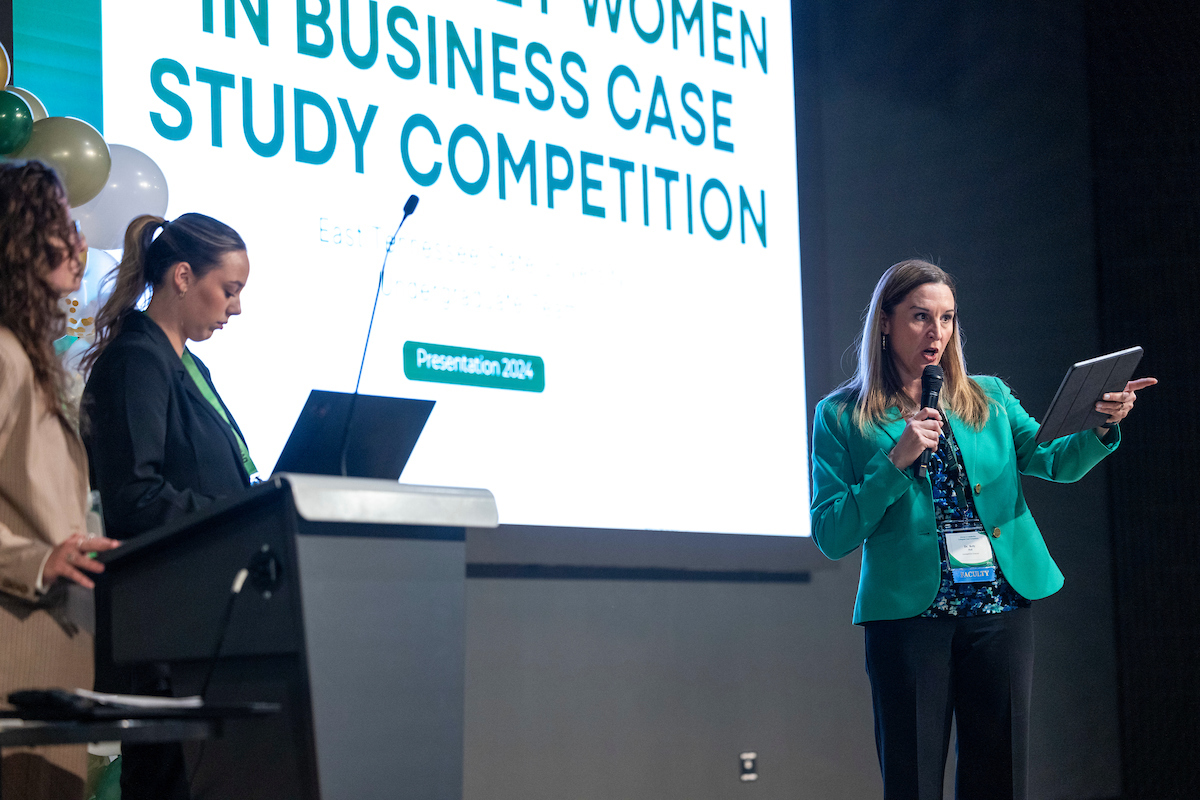UVU’s inaugural Women in Leadership Case Competition brings student teams from the U.S. and Canada to propose innovative solutions to leadership challenges in women and technology, fostering diversity, networking, and leadership development for future women leaders.

Utah Valley University'sWoodbury School of BusinessandUVU Women's Intercultural Engagement Programis hosting the Inaugural Women in Leadership Collegiate Case Competition on March 23-24, 2023. Student teams from universities nationwide and Canada will propose innovative solutions to a complex leadership challenge at the intersection of women and technology. The event will be an excellent opportunity for students and industry partners alike, and it will bring attention to an everyday issue that impacts multiple stakeholders. It also helps address biases that have historically been embedded in leadership cases.
Case studies are widely used in education and are particularly common in business education. Some have argued that, unlike directed teaching approaches, the case method prepares students for challenges ahead of them beyond graduation. A business case highlights a real-world experience within the constraints of an educational setting and reveals a decision that the protagonist must make. Students are typically asked to assume the role of the protagonist, analyze issues relevant to the complex situation, identify problems, explore alternatives and decision criteria, and propose solutions. As they do so, students work with incomplete information, as is customary for complex organizational challenges.
Although the case method has been employed by schools for more than a century, with Harvard Business School leveraging the approach as early as 1912, in more recent decades, case-based learning has moved beyond the classroom and into a competitive setting. Now, it is common to see case competitions worldwide, where teams from various institutions are tested alongside their peers to see who presents, for example, the most robust analysis of the case issues and the most innovative and well-supported solutions. Competitions vary in scope, scale, and judging criteria, and they have become prevalent across diverse business areas, including ethics, international business, supply chain management, and human resource management, among others.
While there has been diversity in the areas where case studies are leveraged for learning, historically, there was not much diversity within the actual cases. A 2014 study revealed that, of the 53 best-selling cases in previous years (i.e., the ones most used in business education), women were absent in 45% of them. Only 7 of the 53 cases featured a woman protagonist, all depicted in traditionally “pink sectors” (e.g., fashion). Moreover, males were the lead author in 87% of the cases. These results indicated that the unspoken mantra “Think Leader-Think Male” was embedded in the teaching materials commonly used across business schools. When students frequently see men in the leader role, it can perpetuate biases about who has the requisite skills to hold leadership positions and solve complex problems. In response to the findings, many case publishers now monitor the diversity of case protagonists, and curate cases with diverse leaders and topics impacting diverse stakeholders.
Despite the progress in recent years, there is more to be done to reinforce the importance of women leaders and their role in solving complex challenges that impact diverse stakeholders. In this vein, UVU has launched the Women in Leadership Collegiate Case Competition, facilitating opportunities for developing women leaders and allies and amplifying discussions that impact women and other stakeholders. Student teams have been asked to analyze the focal case alongside legal, social, ethical, and leader character considerations.
The competition brings value to multiple parties. Students who compete will benefit from the opportunity to showcase complex problem-solving and presentation skills, engage in networking, apply classroom learning, build confidence, and contribute to critical conversations. Local industry members can likewise benefit from and engage in the competition, as they can observe in-action and potentially recruit high-performing students. To this point, we invite community members to attend the final competition round and networking event(See details and RSVP here by March 20th).Further, we invite local leaders from , , and to consider engaging as competition judges, and interested parties can reach out here:[email protected]
We look forward to the local community supporting this inaugural event and enhancing students’ learning experiences!
The competition organizers include:Kelly Hall,Jessica Montana Ballard,Justine Dorton,Celestia Frei, Megan Charchenko, and a team of impressive UVU students in the Woodbury School of Business Event Management Program, who are helping execute the competition as part of their semester engaged-learning project.
Selected References
Mesny, A. (2013). Taking stock of the century-long utilization of the case method in management education.Canadian Journal of Administrative Sciences, 30(1): 56-66.
Symons, L. & Ibarra, H. (2014). What the scarcity of women in business case studies really looks like.Harvard Business Review.https://hbr.org/2014/04/what-the-scarcity-of-women-in-business-case-studies-really-looks-like
Weybrecht, G. (2016). Eight ways case competitions can enhance your business degree.AACSB.https://www.aacsb.edu/insights/articles/2016/01/eight-ways-case-competitions-can-enhance-your-business-degree